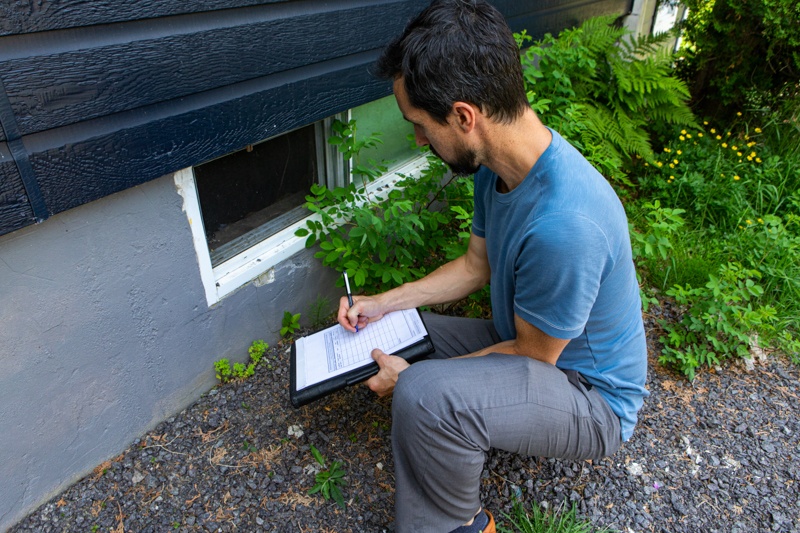Your Offer To Buy A Hawai’i Home Is Accepted… What’s Next?

Congratulations – your offer has been accepted! If you are a first time home buyer, or buying a property in Hawaii for the first time, you may be wondering, “What’s next?” Well, this is where your real estate agent can really prove his/her value to you. If you are working with me, I’ll provide you a timeline of what needs to occur and by when, so you have a clear understanding of the process. And don’t worry if there is something you do not understand. I’m readily available to answer your questions or help address any concerns. The key thing to know is that from here on out, time is of the essence. In order to protect your interests and ensure a smooth and on-time closing, it’s important we act in a proactive manner. So, let’s get started. First…
Home Inspection
A key contingency in a Purchase Contract is the property inspection. The cost is buyer’s responsibility. I highly recommend an inspection by a licensed inspector to almost all of my clients. For an average size house, an inspection will take 2-3 hours. Afterward, the inspector will provide you with a detailed summary of his/her discoveries.
It is important to note that inspectors are liable for their final reports*. Thus, a reputable inspector will be very thorough when documenting the discoveries. Also, a home inspector is not an expert in every field. Depending on age, condition, price of the home, and feedback from their inspector, buyers may opt to perform inspections of: the foundation, roof, sewer line, cesspool or septic tank, HVAC, or other items.
*An inspector will almost always find an issue with a property. In fact, in all the inspections I’ve participated in, I don’t recall ever seeing a completely “clean” report.

Document Review
If you are a first-time homebuyer, you might be daunted by the documentation you receive once under contract. However, there is no reason to stress. Millions of people have gone through a similar process and are now happy homeowners. If you are unfamiliar with any documents, never hesitate to ask your real estate agent to explain them. I also recommend having many of the documents reviewed by a trusted attorney and/or accountant.
Seller Disclosure Statement
A seller disclosure statement is a document completed by the seller that discloses all “material facts” pertaining to the home being offered for sale. Under Hawai’i law, almost all sellers must complete and provide this disclosure form to the buyer. It is 5 pages and asks the seller a variety of questions pertaining to the condition of the property.
The questions will be answered with Yes, No, NTMK (not to my knowledge), or NA (not applicable). When the seller answers “Yes” to a question, the seller will provide an explanation. During the review period for the disclosure statement, you can cancel the contract for any reason and your earnest money will be returned to you.
Once completed, the statement is valid for 6 months but the seller must update the disclosure statement if any new issues are discovered. Hawai’i law holds the seller responsible for disclosing all “material facts.” A “material fact” is any fact, defect, or condition, past or present, that would be expected to measurably affect the value to a reasonable person of the residential real property being offered for sale.
Preliminary Title
The preliminary title report will be provided to you via a title company. The title report is one of the most important documents for you to review when you are considering purchasing a property. If you are unfamiliar with reviewing a title report, I highly recommend you have a real estate attorney review it but you can also seek assistance from your Realtor or title rep. Important things to look for in a title report:
- Legal description
- Name(s) are on the title
- Mortgages
- Property taxes
- Liens
- Encroachments
- Easements
- Restrictions
- Covenants, Conditions, and Restrictions (CC&Rs if condo or PUD)
- Any other items recorded against the property
Condominium Documents
These documents are ordered and paid for by the seller and usually entails a significant amount of paperwork. If you are not familiar with these documents, it is recommended you have an attorney and/or accountant review them with you. Some of the most common document you will receive are: the Declaration; Bylaws; Conditions, Covenants, and Restrictions (CC&Rs); meeting minutes; financial statements; reserve study; and project information form.
You can also terminate the contract during this review period for any reason and get your earnest money back.

Termite Inspection
Yep, Hawai’i has termites – a lot of them. And if not properly dealt with, they can do extensive damage to a property. For this reason, having a property inspected for termites by a licensed professional is a must before you complete the purchase of a home in Hawai’i. In fact, in Hawai’i, most lenders want a satisfactory termite inspection report (TIR) before they will provide funding.
If you are a homebuyer in Hawai’i, there is less of a reason to stress about this issue than if you are the seller. First, the requirement for a termite inspection is clearly stated in the standard purchase contract. Secondly, the expense of the inspection is typically paid by the seller. Lastly, if the property is discovered to have a termite problem, again, the seller is typically responsible for any treatment to kill the termites.
Survey
Applicable only to houses, the survey is ordered and paid by the seller. The survey is done by a Land Surveyor licensed in Hawai’i. The survey involves marking property corners and creating a map. The map will show the layout of the land and any improvements such as house, fences, walls, garage, roof overhang, etc. The biggest objective with the survey is to determine if there are encroachments between subject property and neighboring property(s).
If an encroachment – such as a fence running on your neighbor’s lot – is less than 6 inches (15.24cm), that is considered de minimis and does not require an encroachment agreement by law. If an encroachment is more than 6 inches then seller must remedy the issue. This can be done by signing an encroachment agreement with the neighbor. This agreement declares both parties are aware of the encroachment, and they will leave it in place and only if the encroachment gets destroyed by more than 50% it shall be re-constructed along the correct property line.
Appraisal
An appraisal of the property will be required if you are obtaining financing to purchase the property. An appraisal is an independent and unbiased assessment of how much the property is worth. The reason a lender requires an appraisal is the lender wants assurance the property provides enough collateral (that the property is worth at least what the buyer is paying) in case the buyer defaults.
In my experience, appraisal reports usually come in at the purchase price or slightly above. However, there are occasions when the property is appraised at a value lower than the purchase price. In this instance, the buyer has several options. First, the buyer can try to negotiate a lower purchase price with the seller. Next, the buyer can terminate the deal. Also, the buyer can try to dispute the appraiser’s findings or get a second appraisal. Lastly, the buyer can bring more cash to closing to make up the difference between appraised price and purchase price.
Final Walkthrough
You’re on the home stretch. The final inspection generally occurs just prior to closing. You will visit the property to verify that all is in working order, and in the same condition as when you last viewed it. You also want to verify that everything included in your purchase is still at the property. Lastly, it’s good to make sure the seller did not leave any personal items behind.
Payment Of Remaining Balance
All funds necessary to complete the transaction (purchase price plus closing costs) must be deposited with escrow 2 days prior to recordation.
Signing
Yahoo! Hopefully it has been a smooth transaction for you so far. Very soon, you’ll be a new owner of a home in Hawai’i… but in order for that to happen, you first need to sign or initial numerous documents.
Amidst the documents the closing agent (who is a public notary) will provide you for signing is the deed. This document conveys ownership from one party to another. The closing agent will also provide you a settlement statement, which summarizes and details the financial transactions enacted in the process. Other documents you will sign are the preliminary title report, termite inspection report, and Conveyance tax certificate. If you are obtaining financing, you will have to sign all pertinent documentation required by the lending institution. Also, if you are unable to attend the scheduled closing at the escrow office or in Hawai’i, arrangements can be made for a “mobile” notary to meet you.

Recordation and Getting Keys
On the date of recordation, escrow will be informed by the Bureau of Conveyance – the government office where the deed is recorded – that the new deed has been recorded. The escrow will notify your realtor (typically by before 9 am), and your realtor should notify you soon after. At this point, you are now a new homeowner. If you are working with me, we will already have made plans for getting you the keys so you can start moving in – congratulations!
Interested in buying a property here in Hawai’i? Simply call me directly at 808 354-5772 or click here. I look forward to helping you achieve your real estate goals. I’m here to serve you.


Leave your opinion here. Please be nice. Your Email address will be kept private, this form is secure and we never spam you.